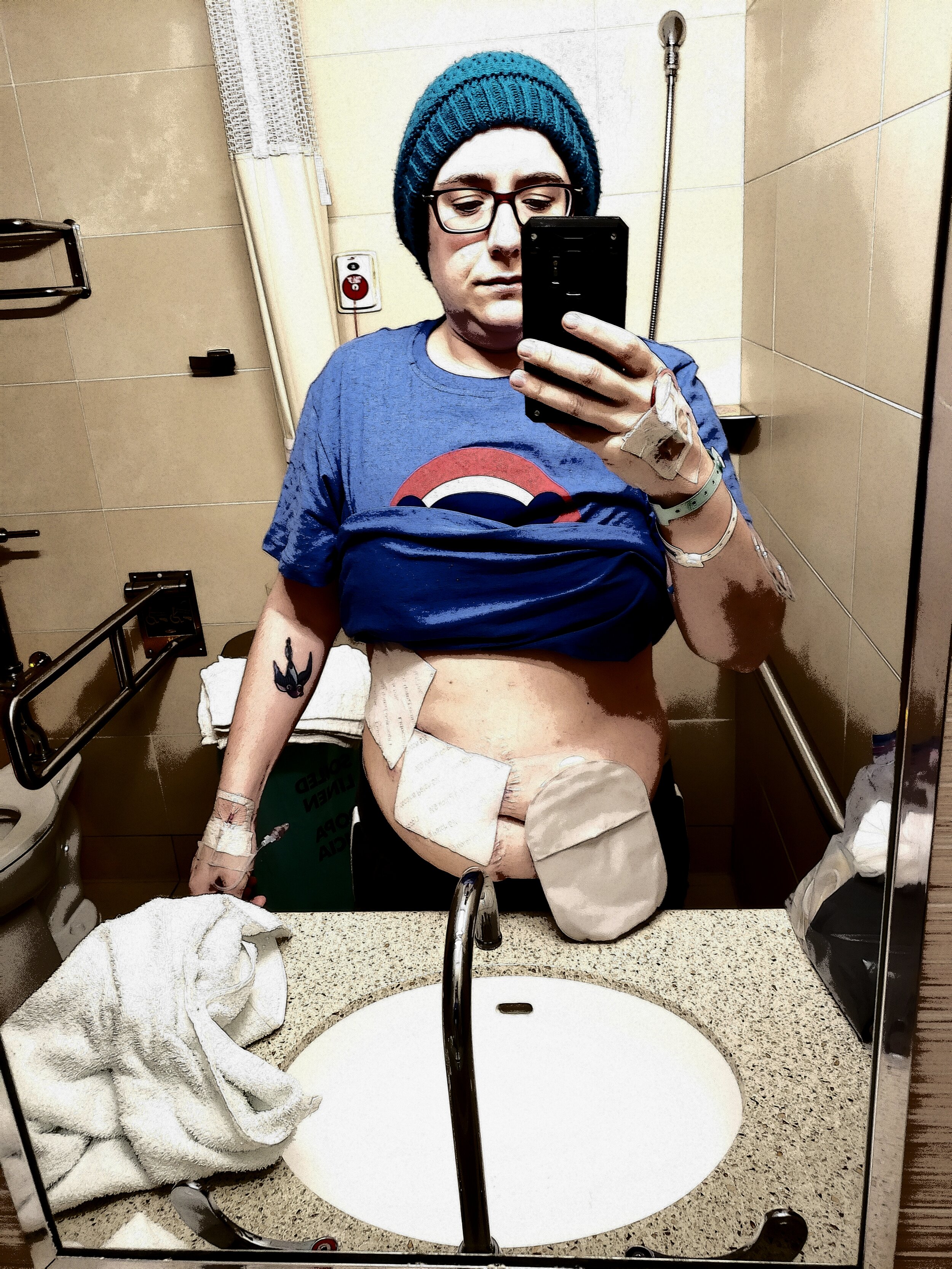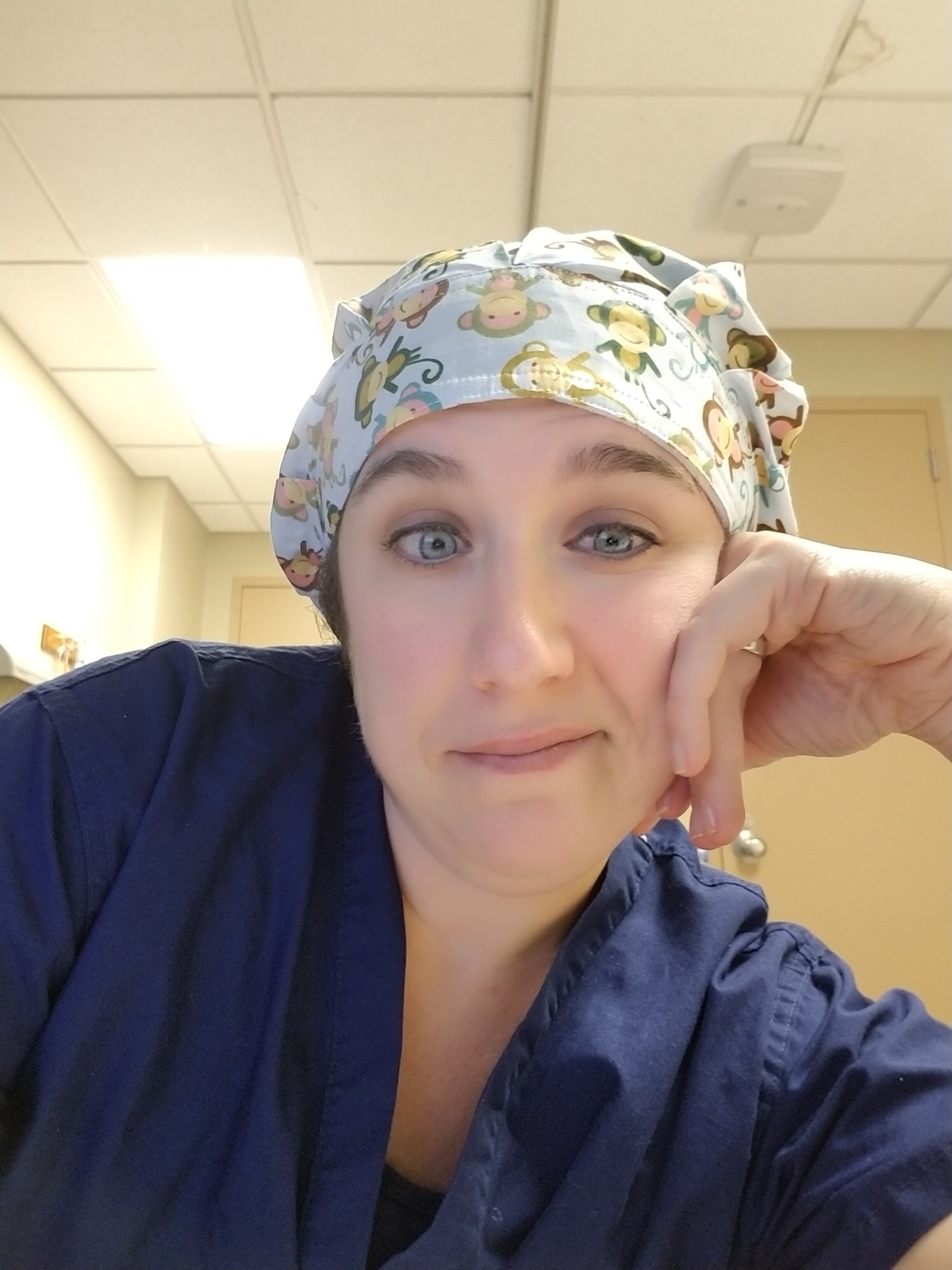Coping | IBD | Ostomy

There are times when I am laying in bed feeling like I have been hit by a Mack truck for no reason, that I wish there was a way for patients to truly capture what their life is like. It never fails that on the day of my doctor’s appointment I feel pretty good. It’s one of the good days that feel like they are becoming more few and far between. So, I try to articulate to the doctor how I usually feel, but not today.
I know as a nurse practitioner myself, that sometimes, patients come to the office, and their story just doesn’t quite match the clinical picture. That’s not to say that they are lying, but rather that health, in my opinion is a subjective continuum. Something that I think is horrible and unbearable, may be tolerable in your eyes, and the opposite is also true.
In the past year or so, I have been struggling to find a care team that I am comfortable with. It took 9 months, but I think I have finally succeeded. I have had many consultations with doctors that I just didn’t mesh with. I have had heated discussions with others that I couldn’t stand. You see, I get that I am just a patient in their eyes. I am just a 15 minute appointment on their schedule. I am not doubting their expertise in the subject matter, but this is my health…my life. So when a doctor tell me to give a medication another month or two to reach peak effectiveness, it’s hard for me to clearly visualize that light at the end of the tunnel. The medical side of my mind knows that sometimes meds need time to work, and for side effects to stabilize- but the patient in me is struggling. When I ask questions, it’s not that I am doubting their education or knowledge, I am trying to make sure that I have a clear understanding. That’s how my mind works, I like to understand the rationale behind things.
My labs are often completely normal, when I feel horrible. Doctors always say, “Well your labs are good, so that’s reassuring.” Is it? If my labs are good, then why do I feel horrible? I mentioned this to one of my favorite GI docs during my first encounter with her and she responded, “I don’t care what your labs say, if you are telling me you aren’t well, then you aren’t. You are the expert in you.” That was the first time, in a long time, that I felt like someone was listening and believing me.

As a provider, I know that a lot of times labs and diagnostic tests can aid in allowing us to see and diagnose the big picture. I also know that sometimes, they don’t, and we are left with a patient who is ill with little idea why, or what to do about it. Sometimes I feel like I am constantly in that boat, I am not well, it’s evident, but no one knows why or how to help. Maybe this specialist can shed some light, or maybe this one, or that one. And after 6 more months of testing and visits, we are no closer to the answer. And I still feel like crap. It’s so frustrating.
I had a doctor tell me once, “I know you are struggling right now, but I have to tell you, it could be so much worse.” That statement made me so mad, I had to clench my fists at my sides. I know many people in similar situations to mine that can’t have anything by mouth, are hooked up to central lines and feeding tubes to sustain their system. I am thankful every day that I am not sicker than I am, but that doesn’t mean that as a patient I shouldn’t be fighting to be as well as I can be. The more in tune with my body I am, the sooner I can pick up on changes that if caught quickly could prevent me from being more intensely ill. That’s my job as a patient, right, to know my body? Aren’t I supposed to be the resident Charlotte Rensberger expert?
The empathetic side of me also knows, that there have been times as a provider that I haven’t known what to diagnose my patient with, or how to treat them. So when, as a patient, I feel angry and frustrated, I try to look at the situation from the other side of the desk. It’s hard. Sometimes, I just want it to be about me for once, I want someone to fix me. Then I remember all the patients that I have had conversations with, when I just didn’t really know for certain how to treat them, when I was on the receiving end of their frustrations. I became a provider because of wanting to diagnose and treat people, it’s my goal with every patient encounter, but sometimes, I just can’t.
Today, I remind myself, that I am doing the right thing advocating for my health, it’s ok to be persistent. I remind myself that this provider, who is coming off more harshly than they likely intend to, might just not know. However, just because they don’t know doesn’t necessarily mean that I can’t partner with them to get more information, and more options for treatment, even if the treatment plan doesn’t entirely lay in their hands. Your patient care team should always be a partnership of the necessary medical providers, yourself, and your family. The team should work together for the same goal- to get you as healthy as you can be, and to keep you that way for as long as possible, and to try to limit the days that you feel like you got hit by a bus to as few as possible.
And sometimes, as a provider, I need that reminder about my patients as well.

Charlotte Rensberger is from Battle Creek, Michigan. She has been battling Crohn’s disease since she was 16 years old and has a permanent ileostomy at age 36. She has been married for 14 years, and has two school aged children who keep her busy. Charlotte is a Pediatric Nurse Practitioner who currently works in a community hospital’s newborn nursery. In her spare time, she bakes, re-finishes furniture, crochets, and enjoys worship music.

Thank you so much for this article!! It makes me feel less alone in my struggle. I’m in a frustrating stance with my care team right now. They don’t seem to want to do much and it makes me depressed and anxious. I too work in healthcare as a medical researcher, which does make me more critical of my test results and what we are doing to help me feel better. Talking to some other IBD patients and chronic illness sufferers we all face at some point the, “Your tests look fine” statement and it can be so aggravating. Your article helped me to see that it can be just as aggravating to the provider as it is to me. I hope you and your care team can figure things out and you can have more good days!
Thank you for sharing 🙂